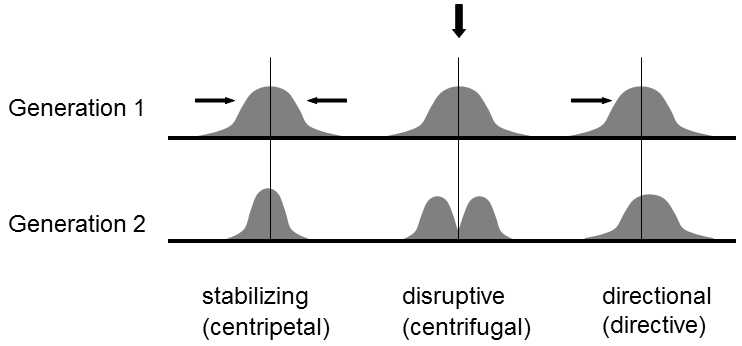IV.6.2 Stabilizing, disruptive and directional selection determine the direction in which a quantitative trait evolves.
If we monitor the values of a certain quantitative trait, e.g. body length, in a large population of organisms, we usually find that this trait had normal distribution in the population.There are very few very large and very small individuals in the population, while there are the greatest numbers of individuals of medium size.This is a result of the fact that a quantitative trait is mostly determined by a large number of relatively independent and mutually replaceable genes.It follows from the rules of combinatorics that only a very small number of individuals inherit from all their genes those alleles that have an identical effect, e.g. cause a larger body size.Most individuals inherit part of the alleles causing

Fig. IV.7. The effect of stabilizing, disruptive and directional selection on the distribution of quantitative traits in the population.
larger size and part causing smaller size, so that their phenotype will approach the average.If we compare the distribution of a given quantitative trait (number of individuals in individual size classes) prior to commencing the process of natural selection and after its termination, then we frequently find substantial differences.Three types of natural selection can be distinguished on the basis of the character of these differences (Fig. IV.7).
